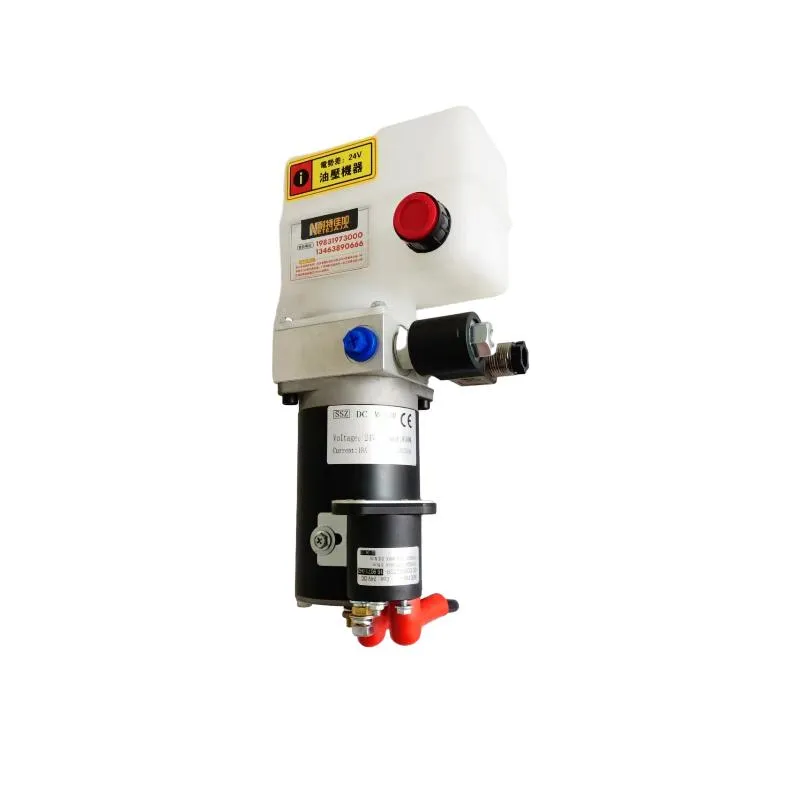Nov . 22, 2024 18:03 Back to list
hydraulic iso cylinder manufacturers
Understanding Hydraulic ISO Cylinder Manufacturers
Hydraulic cylinders are pivotal components in various industrial applications, serving as the muscles behind a host of machinery, including construction equipment, manufacturing devices, and automotive systems. Among these, ISO cylinders have gained prominence due to their standardized dimensions and performance metrics. This article delves into the realm of hydraulic ISO cylinder manufacturers, highlighting their significance, characteristics, and what to look for when selecting a reliable manufacturer.
The Role of ISO Standards in Hydraulic Cylinders
The International Organization for Standardization (ISO) has established specific standards for hydraulic cylinders, primarily to ensure compatibility and interchangeability among different systems and components. ISO 6020-1 and ISO 6020-2, for instance, outline dimensions, performance criteria, and testing methods for hydraulic cylinders. These standards promote efficiency and safety, making it easier for manufacturers and users to select components that meet rigorous quality, performance, and durability benchmarks.
Key Characteristics of Hydraulic ISO Cylinders
1. Standardized Sizes and Specs ISO cylinders come in standardized sizes, which simplifies the design and integration processes in various machines. This standardization means that parts can often be swapped between different brands without modification.
2. Robust Construction Manufacturers of hydraulic ISO cylinders prioritize durability. These cylinders are typically constructed from high-strength materials such as carbon steel, ensuring they can withstand high pressures and harsh operating conditions.
3. Customizable Features While ISO cylinders adhere to specific standards, many manufacturers also offer customization options. This allows businesses to tailor cylinders according to their unique operational requirements, including stroke length, mounting styles, and rod configurations.
4. Enhanced Performance The design and engineering behind hydraulic ISO cylinders are focused on maximizing performance. This includes smooth operation, efficiency in energy consumption, and minimal maintenance requirements.
Choosing a Reliable Manufacturer
When selecting a hydraulic ISO cylinder manufacturer, several critical factors should be considered
Look for manufacturers with a strong reputation in the industry. Companies that have been in the market for years and have demonstrated expertise in producing hydraulic cylinders are often more reliable. Customer reviews and testimonials can provide insight into their track record.
hydraulic iso cylinder manufacturers

2. Quality Assurance
It is essential to choose a manufacturer that adheres to strict quality control measures. Look for those with ISO certifications, as this indicates that they emphasize quality management systems throughout their production process.
3. Range of Products
A manufacturer offering a wide range of ISO cylinders, along with various accessories and components, can be beneficial. This indicates that they have the capacity to meet diverse requirements and can support future expansions or modifications.
4. Technical Support and Services
Optimal performance of hydraulic cylinders often requires expert knowledge. Manufacturers that provide robust customer support, skilled technical assistance, and guidance on installation and maintenance will be invaluable.
5. Customization Capabilities
If your requirements are not typical, finding a manufacturer that can offer customized solutions is crucial. Look for those willing to work closely with you to design cylinders that fit your specific needs.
The Future of Hydraulic ISO Cylinder Manufacturing
As industries continuously evolve, so do the technological advancements in hydraulic cylinders. Manufacturers are increasingly integrating smart technologies into their products, enabling real-time monitoring and predictive maintenance capabilities. This move not only enhances efficiency but also significantly reduces downtime and maintenance costs.
Furthermore, as the demand for environmentally friendly machinery grows, manufacturers are focusing on optimizing energy efficiency and reducing waste in their hydraulic systems. This alignment with eco-friendly practices is becoming a critical factor in the selection of hydraulic ISO cylinder suppliers.
Conclusion
The hydraulic ISO cylinder market is vast and diverse, populated by numerous manufacturers competing to provide high-quality, efficient solutions for today's demanding applications. Selecting the right manufacturer relies on understanding your specific needs, evaluating the quality of potential suppliers, and considering their capacity for customization and support. By staying informed about industry standards and innovations, businesses can ensure they invest in hydraulic cylinders that will enhance their operations for years to come.
-
Efficient & Reliable Double Acting Power Unit | Hydraulic Solutions
NewsAug.23,2025
-
1.5 Ton Turbocharged Cylinder 80/95-40/60-35-124 | High Performance
NewsAug.22,2025
-
High-Performance Fork Lift Hydraulic Power Units
NewsAug.21,2025
-
High-Quality Set of 50/60-45-290 471 - Precision Parts
NewsAug.19,2025
-
1.5 Ton Lifting Cylinder-Hebei Shenghan|Heavy-Duty Lifting, Precision Engineering
NewsAug.18,2025
-
1.5 Ton Lifting Cylinder-Hebei Shenghan|Precision Hydraulic Solutions&Industrial Lifting
NewsAug.18,2025
